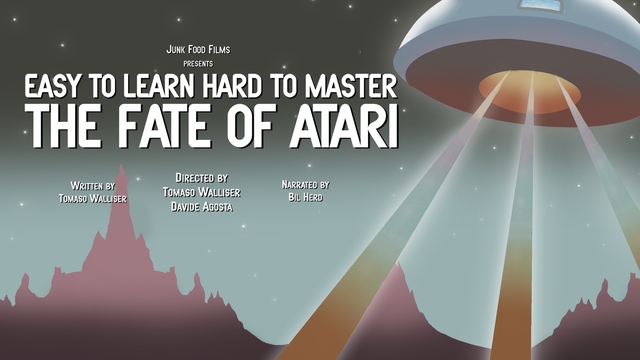Easy to Learn, Hard to Master: The Fate of Atari
The turbulent story of the company that taught the world how to game
 Before Google, Yahoo and even Apple, before the Silicon Valley cliches of informal dress code, skateboards running the corridors and wild creativity became commonplace, one company dominated the digital economy and its business style. The firm introducing the world of computer gaming to the mass consciousness was Atari. So what went wrong?
Before Google, Yahoo and even Apple, before the Silicon Valley cliches of informal dress code, skateboards running the corridors and wild creativity became commonplace, one company dominated the digital economy and its business style. The firm introducing the world of computer gaming to the mass consciousness was Atari. So what went wrong?
"Atari was started in a little shop in Santa Clara," recalls Al Acorn, the first engineer at Atari. "We had no money to fund this, and no space." A tiny workshop with a skeleton staff was the birthplace of video games as we know them. From there, Nolan Bushnell, the founder of Atari, developed the immensely successful Pong arcade game that launched the company to dizzying success.
"Pong was the first game to reach the mass consciousness, showing some of the potential of this new media," Eugene Jarvis, one of Atari's early programmers, relates. The game inspired and amazed a whole generation of prospective computer engineers - as Steve Wozniak, co-founder of Apple, recalls: "I saw this game and I said, 'oh my god, you can make a game on a television set?' Who would've ever thought of that?" Both Steve Wozniak and Steve Jobs soon took on jobs at Atari, where they learned the ropes of commercial computer engineering.
Competition soon followed and the breakthrough game was widely imitated. "We were heavily, heavily copied. There were, at one time, 23 Pong-type manufacturers," Nolan relates. "Our strategy was to be the most innovative and most clever company around." This approach proved successful. The company moved from arcade halls into living rooms with its home console, which defined how games would forever be consumed.
A string of hit games and groundbreaking technology has solidified Atari's iconic reputation and it remains a household name to this day. Yet after a staggering upwards trajectory, global acclaim, and a virtual monopoly of the market, Atari collapsed in 1984, only twelve years after its inception. So how exactly did this visionary company take off and what led to its ultimate demise?
FULL SYNOPSIS




